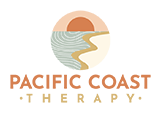Depression can feel like a heavy weight, dragging you down and dimming your once vibrant spirit. Therapy can be a powerful tool in battling depression, but to truly conquer it, setting clear and therapy goals for depression is crucial. These goals act as a roadmap, guiding you on the path to recovery.
Why Are Therapy Goals for Depression Important?
Having well-defined therapy goals for depression offers several benefits:
- Provides Direction: Clear goals give both you and your therapist a roadmap for treatment. This helps you track progress, stay motivated, and celebrate milestones along the way.
- Boosts Motivation: Seeing tangible improvements keeps you motivated and engaged in therapy. Achieving smaller goals builds momentum and fosters a sense of accomplishment.
- Tailored Treatment: Your therapist can tailor treatment approaches to address your specific needs and goals. This personalized approach ensures you receive the most effective support.
What Makes Effective Therapy Goals for Depression?
Here are some key characteristics of effective therapy goals for depression:
- SMART Goals: Specific, Measurable, Attainable, Relevant, and Time-bound. Your goals should be clear, concrete, and achievable within a specific timeframe.
- Focus on Progress: Depression recovery is a journey. Set goals that celebrate incremental improvements, not just reaching the final destination.
- Aligned with Your Values: Consider what brings you joy and meaning in life. Your goals should reflect a desire to move towards activities and experiences that are important to you.
Examples of Therapy Goals for Depression:
Here are some examples to get you started:
- Improve Sleep Hygiene: Set a regular sleep schedule, create a relaxing bedtime routine, and aim for a specific number of quality sleep hours each night.
- Increase Physical Activity: Start with small, achievable goals, like a 20-minute walk three times a week, and gradually increase duration and intensity.
- Practice Relaxation Techniques: Learn and practice deep breathing exercises, meditation, or progressive muscle relaxation to manage stress and anxiety.
- Develop Healthy Coping Mechanisms: Identify unhealthy coping mechanisms like isolation or substance abuse and replace them with healthier alternatives like journaling or spending time in nature.
Working Together for Success
Developing therapy goals for depression is a collaborative process between you and your therapist. Don’t be afraid to adjust your goals as needed. Open communication and a willingness to adapt are key ingredients for success in therapy.
Remember, conquering depression takes time and effort, but with clearly defined goals and the support of a qualified therapist, you can reclaim your life and rediscover the joy that lies within.
Lets Connect




